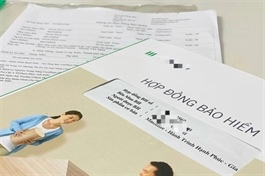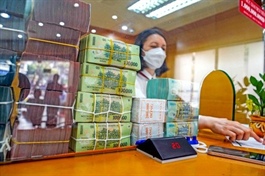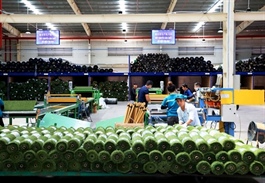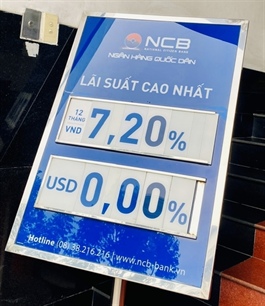Exporters being stifled by VAT tweaks
Exporters being stifled by VAT tweaks
The constant changes of requirements for verification of records and invoices are being called too challenging for exporters, with businesses complaining that VAT refund procedures are becoming more baffling.

Nguyen Thu Doan, director of a furniture exporter in the southern province of Binh Duong, claimed that the requirements for verification of invoices and the origin of raw materials are constantly changing, so it is difficult for businesses to get a handle on the regulations.
The tax authority requires enterprises to verify every invoice for domestic materials, and then verify foreign customers. However, instead of waiting for the tax authority to verify the identity of the overseas buyers as before, the company is asked to have a tax officer check and verify when the goods are shipped, Doan said.
“At present, the market is falling and we have narrowed the company’s operations due to a lack of orders. This July, we had an export order and asked the tax officer to come and verify. After scheduling an appointment, the tax authority said it did not need to check shipping orders, and they would check the input invoice verification records, and otherwise they would only refund verified invoices,” she said.
“However, the tax authority has already confirmed more than 60 per cent of the total input invoices, but we have yet to be refunded because of the requirement to verify the origin of the wood,” Doan said. “Enterprises mainly buy raw materials from other companies, mostly state-owned ones, but it takes a lot of time to verify. And verifying shipping lines or ports is the responsibilities of the tax authorities. What are businesses supposed to do?”
Le Manh, chairman of Leglor Services Trading Production in Ho Chi Minh City, said that over the last two years, delayed VAT refunds have totalled VND30 billion ($1.25 million). The company has received VND10.5 billion ($437,500) so far, and do not know when they will get the rest.
“The process of VAT refunding is too complicated. Our tax refund dossier was first submitted in July 2021. At the end of 2021, the dossier had to be adjusted because the District 9 Tax Department was waiting to merge with Thu Duc’s tax department,” Manh said.
“Since then, we have sent six petitions and two proposals to the new tax office. The authority confirmed that the dossier was complete and clear, but could not give a refund due to problems in regulations on origin verification,” Manh added.
Ngo Sy Hoai, vice chairman of the Vietnam Timber and Forest Products Association, said that wood exports have dropped significantly in recent times. There are numerous reasons for the difficulties in the wood industry, but most come from the US market (accounting for 55 per cent of total exports) applying trade protectionism, resulting in a decrease in exports from Vietnam.
He said that amid these difficulties, $260 million in VAT for related enterprises has not been refunded, of which the woodchip industry accounts for 65 per cent.
“This is just an estimated amount, and it may be even double because many businesses are afraid to ask tax and customs authorities. So the VAT refund for businesses needs more substantive and effective solutions to remove these issues,” Hoai said.
He added that timber exporters wanted the lending rate from foreign currency loans to be reduced to 3.8 per cent from an existing average of 4.2-6 per cent a year in order to support them to overcom challenges and increase competitiveness. “It is necessary to conduct a VAT refund for these enterprises because the amount is too large. Moreover, the tax authority should remove wood producers from the high-risk business list in tax refund because the main sources of raw materials come from forests and farmers, so it is difficult to meet the requirements of the tax authority,” Hoai said.
Economist Dinh Trong Thinh said that tax authorities were responsible for fully refunding tax according to legal provisions.
“The law also identifies the maximum confirmation time for extension is 15-20 days, and cannot be extended for a whole year. If the tax refund is delayed, the tax authority must consider and change the regulations, and give a specific deadline,” Thinh said.
“It is also necessary to stipulate that after getting tax refunded, if any fraud is detected, enterprises must take responsibility, which will improve the responsibility of businesses,” he added.



























